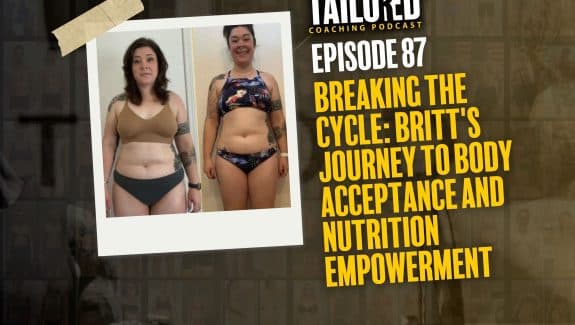The human gut, or “The Second Brain” as most are calling it – which makes me believe it must be damn important for our health and wellbeing if it is considered the second brain.
The gut has about 100 million neurons, which is more than we have in our spine or in our peripheral nervous system. A neuron is a nerve cell, which means it has an extremely important job of sending electrical signals to and from the brain, nervous system, spinal cord, etc.
It’s essentially a way of our body sending messages back and forth, to ensure we’re functioning properly and not breaking down.
I’ve used this analogy a million times and I’ll use it again… Think of the nervous system like an amp in your car stereo and your systems are the speakers. Without the amp working and knowing what signal to put out, the speakers don’t make noise.
In fact, you could think of your neurons as the power cords going from the amp to the speakers – those cords transfer the signal to make noise (music).
It’s all a working system and without once piece, it all falls apart. When someone has nerve damage they can get breaks in the signal and have many differing dysfunctions.
As if we really need to add to all that, they’ve discovered that the body consists of an estimated 40-50 trillion bacteria (more than 10 times the number of cells we have in our body) and most of this is found in the gut, yet they also say “we’re only starting to realize the effects the gut has on our body.”
Ok, so there are literally millions of neurons, trillions of bacteria inside the gut, and they all directly communicate with or influence some of the ‘big dogs’ in the body, so to speak. So we should most likely give a shit about our gut health because of all this… Right?
Si. Ja. Oui. Sim. Ken. YES.
That’s exactly right, but there’s more too it… Actually, there’s WAY more to it. So here’s a quick list of things that can be effected by the gut and also can be used as signs that you may want to check on yours – if you’re experiencing issues in any of the following, that is.
- Digestive issues like bloating, gas, diarrhea, etc. (regular occurrences, not a “one time I had the shits” type of deal here…).
- Food allergies or sensitivities (you may need a test for this, or if you notice specific things after eating specific foods).
- Anxiety.
- Depression.
- Mood swings and irritability.
- Skin problems like eczema, rosacea, etc.
- Diabetes.
- Autoimmune disease.
- Frequent Infections.
- Poor memory and concentration, ADD or ADHD.
So now that we know how much of an effect it can have on our body, inside and out, what makes this something that we ALL should be concerned with?
Longevity (AKA – Your Lifespan)
This is probably the biggest and most crucial thing to consider. Although all studies are done on some form of animal, like a rat, it’s hard to be too conclusive on the implications related to our lifespan and our gut health.
Simply because we cannot hold people in a study for long enough to be 100% sure.
But what we can assume and what many are predicting, is that having a fully optimized gut and taking care of your gut health on a regular basis can lead to much better health in the short term and from that, the long run as well.
They’re also predicting this as gut health may be linked to some forms of cancers, IBS (irritable bowel syndrome), ulcerative colitis, arthritis, cardiovascular diseases, autism, liver disease, diabetes, Crohn’s disease, and more…
[ If you want a nutrition plan that gives you good health, optimizes your gut and can provide you a body transformation as well – Click Here for My Free Nutrition Guide ]
General Health
A bit of a carry over from the first bullet, but this may as well be discussed again because it’s that important.
Our gut health is in control of digesting and absorbing all of what we consume. What that means, is that the gut is a vital key to health in our bodies.
Without the gut being in good health, we will not absorb and extract nutrients from our food as well as we should be and we all know that getting adequate vitamins, minerals, fiber, bacteria, probiotics, etc. is a huge part of being extremely healthy.
(For all the women out there who plan to have kids – this should be an even bigger focus for you, because when you have a child your gut health can determine so much of what that baby’s health is determined from)
Performance (Everywhere…)
This goes for performance in the gym, in your work setting, and in the bedroom (Yup, I said it!).
Your hormones will be much better off with a healthy gut, which means you’ll be more likely to produce a family some day. You’ll actually perform better in the gym as well because of some of those same hormones and when it comes to your work life, production and brain activity will be higher – leading to better results there as well.
A really easy way to think of this for all you out there who hate science or scientific points of you (I don’t blame you either)…
If you feel like shit, you will not want to work, lift, or fuck.
Pretty upfront and blunt, but it’s the truth and you know it. So instead of thinking about, “I need to take care of my gut to optimize my T-Levels and Thyroid function for a better performance and v02 max in the gym”… You could simply look at it like, “Healthy Gut = Feel Good = Do Good”.
Your Physique (Fat Loss, Muscle Growth, Strength, etc.)

As most of my readers know, I’m big on flexible dieting. I think it’s important to be able to adjust on the fly and eat foods you enjoy, all while staying healthy and losing body fat (or gaining muscle).
And most of what I preach along those lines is that calories and macronutrients are your #1 and #2 priorities for making that happen. And it’s absolutely true.
Studies have proven you can eat sugar and “junk food” while still losing weight AND maintaining good health, so long as you include your micronutrients and hit your fiber as well (check out my “Great Sugar Debate” article for more on that…).
But at the end of the day, if your gut health isn’t in check, as previously stated, you wont perform well and we all know that performance in the gym makes up more than 50% of what your body turns out to look like.
Studies have also shown that a healthy gut directly leads to a reduction in insulin, triglycerides, and cholesterol in obese populations, which all indirectly will help body composition improve.
Another really cool study done was on obese and lean mice. Scientists started finding that the difference in gut microbiota between lean and obese human and mice, were vastly different.
When they transferred the gut microbiota from the lean mice to the obese mice, the lean mice rapidly gained weight and the obese mice rapidly got lean.
In similar studies they found that those with more healthy gut bacteria gained less fat and had healthier markers of glucose and insulin from a high fat/carb diet.
All of this tells us that if we don’t take care of our gut, it won’t absorb the nutrients or digest the calories we throw at it. This means even with a perfect macro ratio, bad health = no results.
Ok ok ok… I think I got my point across. The gut is a key component to good health, longevity, more strength, and a better-looking body.
But how do we make sure we’re achieving that optimal gut health?
Well, since the bacteria within the gut plays a massive role in all this – lets discuss optimizing the type of bacteria in your gut.
There is always going to be bad and good bacteria, creating the proper ratio of these bacteria are the real keys to a healthy gut. So what defines a healthy ratio or gut? Studies have shown that “A diverse microbiota” is the healthiest and our best bet.
This means that the more variety of bacterial species within your gut, the better off your gut is.
This also means that a diet with a wide variety of foods, colors, nutrients, vitamins, and minerals will always produce a better bacteria variance for you gut and will be the best way to optimize your gut.
This is why the ‘IIFYM’ crowd can take things a bit too far when all that they care about is caloric intake. Yes that is a huge factor in body composition and actually a huge measure in health as well, but without variety of whole foods in your diet you can be seriously compromising the health of your gut microbiome.
So first step is going to be a varied diet.
The next step probably won’t surprise you much. Get your fiber in!
Getting in an adequate amount of fiber from whole foods like fruits, vegetables, legumes, beans and more can help your gut thrive by helping and stimulating the growth of the good bacteria.
The two main healthy bacteria we want to stimulate growth in are Bifidobacteria and Lactobacilli. These specific bacteria have a ton of research showing they may help prevent inflammation, cardiovascular diseases, cancers and much more.
Bifidobacteria can be increased via consumption of apples, artichokes, blueberries, almonds, and pistachios. Lactobacilli can be found in fermented food such as yogurt, kimchi, sauerkraut, kefir, kombucha, and tempeh – these are probiotic foods.
(AKA – Eat more of all that stuff I just mentioned)
Studies have actually proven that when we increase the consumption of foods with these good bacteria, we reduce the amount and effect of the bad bacteria in our gut as well.
So if you want to reduce the likelihood of anything on that list of 10 things the gut can effect in a negative way if not taken care of happening, you may want to increase the good bacteria in your gut right away.
The other type of fiber we want to consume is prebiotic fiber. This comes from foods like onions, bananas, garlic, oats, wheat bran, and other complex high fiber carbohydrate sources.
These are foods that cannot be digested by human cells and are broken down by certain species of bacteria and used as fuel. You can also take pre and probiotic supplements if your diet is seriously lacking in any of these things! (Taking the supplementation version has been shown to help in studies as well, but whole foods always seem to be the best source in my opinion and experience).
So let’s wrap this up with some bullet points you can learn from and follow, just to make things a bit easier (we all love easy bullets).
- There are ~10x more bacteria than human cells in our bodies.
- Your gut is more important than you probably realized, so taking care of it crucial for health and your body composition.
- Eating a wide variety of foods can be a great way to improve gut health.
- Eating prebiotic and probiotic foods are essential for gut health.
- 10% of all U.S. health care costs are related to digestive issues (don’t be part of the statistic).
- You should be getting Bifidobacteria in your diet, which includes foods such as:
- Apples, artichokes, blueberries, almonds, pistachios, raspberries, green peas, broccoli, chickpeas, lentils, whole grains…
- You should also be getting Lactobacilli in your diet, which includes foods such as:
- Fermented food sources such as yogurt (plain, no sugar added), kimchi, sauerkraut, kefir, kombucha, and tempeh.
- Poor gut health is linked with too many diseases for us to not care about.
- Some NSAIDS and antibiotics can negatively impact your gut health and increase bad bacteria, so don’t over do these.
- Too much refined sugar and processed food can harm the good bacteria in our gut over time (you need to eat a LOT of this stuff to impact your gut, so the general rule of 90/10 is a great way to eat).
- Having a healthier gut can and will improve your quality of life and more than likely the length of your life, on top of making a better physique as well.
If you’re worried your diet isn’t following these guidelines, maybe you’re concerned about your health or don’t feel as great as you used too, or maybe you simply want to achieve better results with your physique –
Click Here Now and Jump on a Free Discovery Call with me within 24 Hours, we’ll go over your current plan and map out exactly what you’ll personally need to do in order to see the results you’re looking for.





























































































































































































































































































































































































































































































